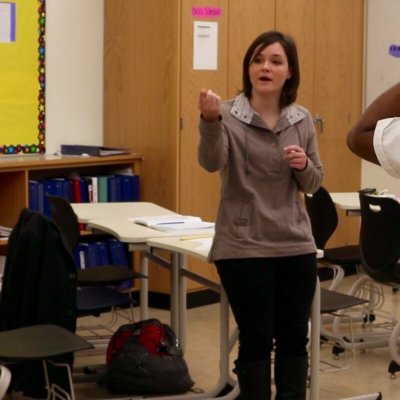Implicit Bias Resources
By Sara Jackson There is a wealth of literature available on implicit bias, and articles on the subject appear almost daily. The following is a non-exhaustive list of video, web, and print resources, some of which we used or referenced at our March 12 event. Videos Immaculate Perception?—Jerry Kang Ted Talk How to Overcome our Biases? Walk Boldly Towards Them—Verna Myers Ted Talk How I Learned to Stop Worrying and Love Discussing Race—J Smooth Ted Talk American Denial—Independent Lens film on Implicit Bias Online Resources Project Implicit ABA Spotlight on Implicit Bias Kirwan Institute for the Study of Race and Ethnicity: Understanding Implicit Bias Academic Articles Implicit Bias: A Primer for the Courts—Jerry Kang State of the Science: Implicit Bias Review—Kirwan Institute for the Study of Race and Ethnicity Trojan Horses of Race—Jerry Kang, 118 Harvard Law Review 1489 (2005) (Professor Kang’s original law review article on implicit bias and the Implicit Association Test) Implicit Bias in the Courtroom—Jerry Kang, et al., 59 UCLA Law Review 1124 (2012) The Id, The Ego and Equal Protection in the 21st Century: Building on Charles Lawrence’s Vision to Mount a Contemporary Challenge to the Intent Doctrine—Eva Paterson, Kimberly Thomas-Rapp & Sara Jackson, 40 Conn. L. Rev. 1175 (2008) (examines where implicit bias plays out in society and in the law, and discussed inroads for updating our jurisprudence to reflect modern social science) Recent News Coverage Is Everyone Just a Little Bit Racist?—Nicholas Kristof, New York Times Across America, Whites Are biased and They Don’t Even Know It—Chris Mooney, Washington Post When Talking About Bias Backfires—Adam Grant & Sheryl Sandberg, New York Times Blindspot: Hidden Biases of Good People —Matthew Hutson, Washington Post Sara Jackson is a member of our Board of Directors. By day, she is Pro Bono Coordinator at Georgetown Law's Office of Public Interest and Community Service.







